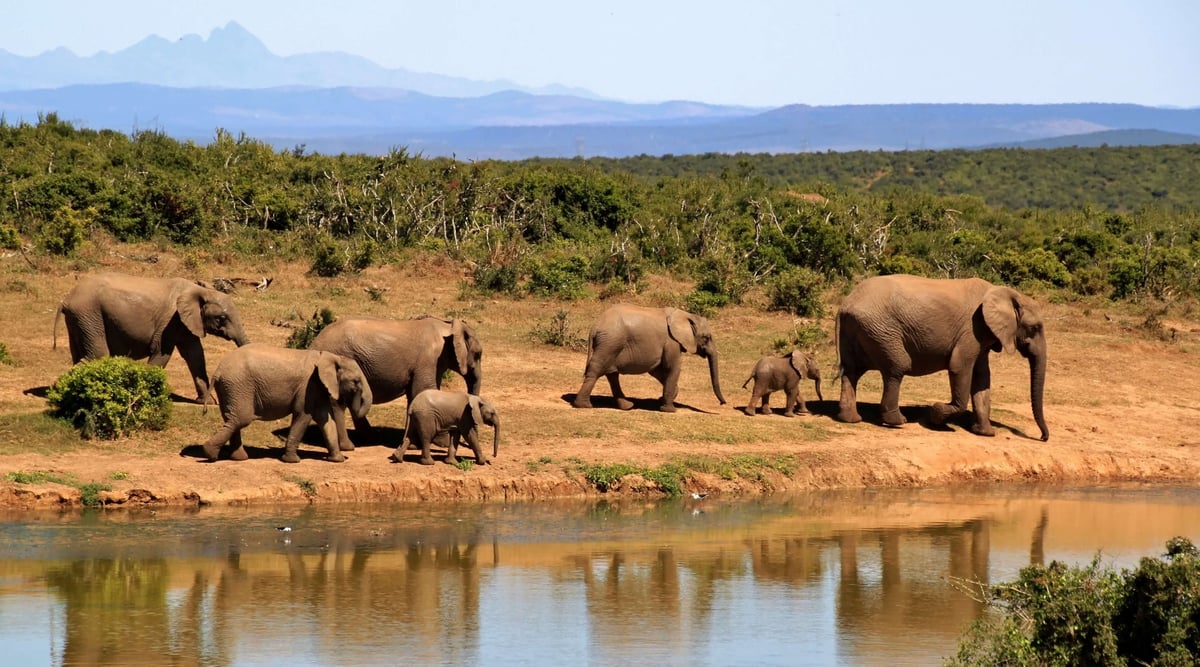For the very first time the world animal conservation body has now recognized the forest elephants and the savanna elephants as two separate species and both of these are now endangered. In the past, elephants were either thought to be either Asian or African. However recent researches have actually identified two different species of these African elephants. The Savanna elephant is very large in size and generally has a pair of large curving tasks. They mostly tend to roam in the open plains of Saharan Africa. The smaller among these two species is the darker forest elephants who have straight tusks and mostly live in the equatorial forests of West and Central Africa.

Both the forest and savanna elephants are now categorized as endangered species
Both the Savanna elephants and the forest elephants are now categorized to be endangered in accordance with the official assessment of the IUCN or the International Union for Conservation of Nature. This organization mostly red lists threatened species and has the world's most comprehensive inventory for their respective extinction risk.
Why African elephants are endangered?
Over centuries humans have been overexploiting African elephants. Almost two thousand years back, the Roman empire's high demand for ivory led to the complete extinction of a genetically distinct population of elephants especially from the northern part of Africa. However, in recent years, the overall increase in population among the South African elephants and decline across the remaining part of the continent has made it really hard to assess how threatened these species are. A team of scientists working for IUCN has started compiling data from four hundred different sites in Africa, spanning over fifty years of conservation effort. However, all their results made for grim reading.

In accordance with the organization, the Savanna elephants, the biggest known subspecies of the elephant family have declined by a whopping sixty percent since the year 1990. Moreover, forest elephant's decline rate is over eighty-six percent during the past two decades. Recently IUCN has changed their listings from vulnerable for all of the African elephants to critically endangered for forest elephants and endangered for Savanna elephants.
Detailed research on these two species of elephants highlights the overall dramatic decline that these forest giants are undergoing. Studies also prove that they are amongst the slowest reproducing mammals on earth. This basically means that even if they receive adequate protection their overall recovery would be taking years.
What are the benefits of African elephants?
African Elephants are known to provide much more than just aesthetic benefits. Some studies also show that these forest elephants also play a key role in enhancing the storage of carbon, especially in the Central African forests. Moreover, elephants are also known to disperse seeds and also thin out young trees as they forage, thereby making more and more room for larger plant species to thrive.
African elephants are also a linchpin to the overall wildlife-based economy of Africa. Elephants are often considered to be the engineers of the world ecosystem helping in creating a balance between grass and trees of the African savannas. Therefore, reversing the decline of these African elephants is of great importance and requires global assistance.
As well as the threats of poaching, the destruction of habitats is also a great danger to elephant populations across Africa. DGB aims to plant three trillion trees, many of which will provide habitat for a diverse array of species (including Africa's magnificent elephants).






